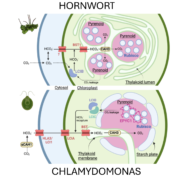
Plant Science Research Weekly: July 26, 2024
Review: Stem cells of the vascular cambium
Vascular cambium cells are meristematic cells responsible for secondary growth. Lineage tracing studies in Arabidopsis and poplar show the presence of single bifacial stem cells in each radial cell file that produce xylem inwards and phloem cells outwards.…

An Interview with Jyotsna Devi Mura: Inspiring Young Women Scientists from Developing Countries Through Grit and Determination
Dr. Jyostna Devi Mura is a USDA-ARS Research Molecular Biologist at the Vegetable Crops Research Unit and Assistant Research Professor at the Department of Plant and Agroecosystem Sciences, University of Wisconsin-Madison. She is a plant physiologist with expertise in the fields of molecular biology…

The Scientific Art of Kindness: Nurturing a Culture of Compassion in Academia
In the cutthroat arena of academia, where the pursuit of knowledge often resembles a high-stakes race, kindness might seem like a quaint, almost anachronistic notion. The relentless chase for grants, the scramble to publish first, and the pressure to secure tenure can make the academic world feel more…

Plantae Presents: Achieving Recognition in the Lab Without Burning Out
Plantae Presents: Achieving Recognition in the Lab Without Burning Out
Featuring Ying-Chen (Jean) Lin, Ling Chuang and Charlotte Gommers
When: Friday, July 26, 2024, at
9:00 AM UTC | 5:00 AM EDT | 10:00 AM BST | 5:00 PM Beijing
About this Webinar
Join us for an insightful webinar about the…
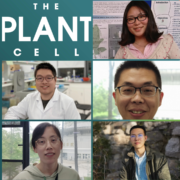
The Plant Cell Features May First Authors
Behind the manuscripts are researchers, professors, professionals and students dedicated to advancing the field of plant science. You’ve seen our First Authors on Twitter and Facebook— now, read more about why they chose to pursue plant sciences and click on the links to read their articles.
Yutao…
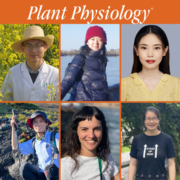
Plant Physiology Spotlights April 2024 First Authors
Behind the Plant Physiology manuscripts are researchers, professors, professionals and students dedicated to advancing the field of plant science. You’ve seen our First Authors on Twitter and Facebook— now, read more about why they chose to pursue plant sciences and click on the links below the pictures…
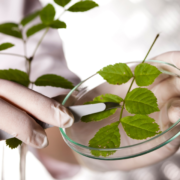
Science Communication is an Important Skill for Scientists
Why science communication is an important skill?
Communicating science is not trivial. It is a skill that requires a level of creativity, interest, and critical thinking. Nevertheless, it is an important skill for scientists. Science communication makes the impact of scientific findings real and…
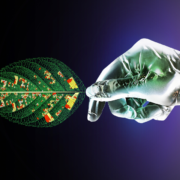
Embracing the Artificial Intelligence Green Revolution: Unleashing Innovation in Plant Sciences
Why does AI matter in this verdant domain? Picture a world where data dances with genomes, phenotypes, and environmental variables in an intricate waltz of insight. AI orchestrates this symphony, revealing patterns and predicting outcomes at a speed that would make Mendel's peas blush. From spotting…
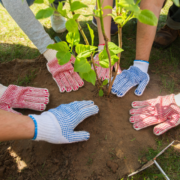
Fostering Engagement: Strategies to Involve Pre-university Students in Plant Science Research
Population growth and climate change threaten food security and exacerbate agriculture's environmental impact, necessitating a passionate, interdisciplinary community of plant science professionals to engage the public and students (Friesner et al., 2021). By involving young students in hands-on research…

